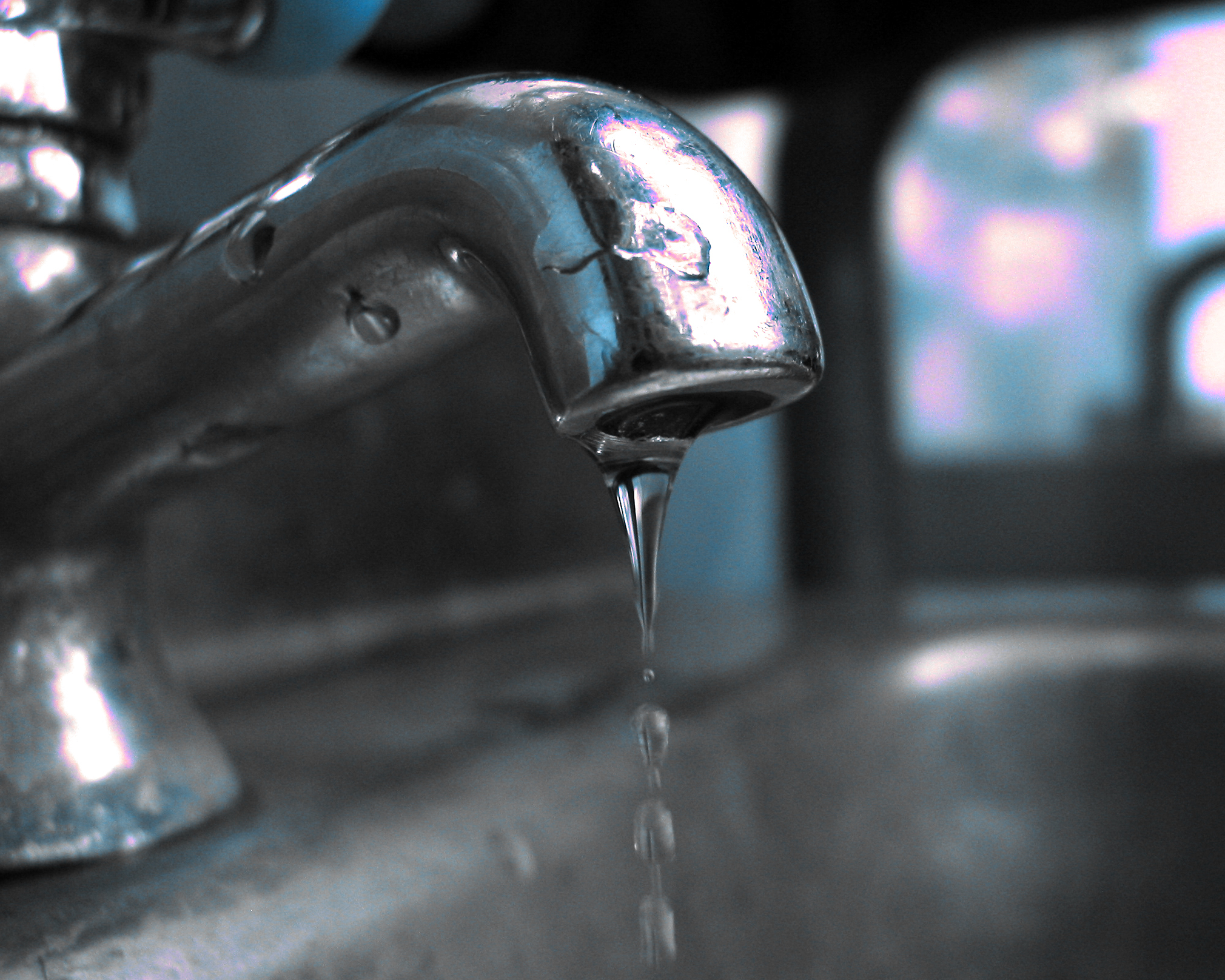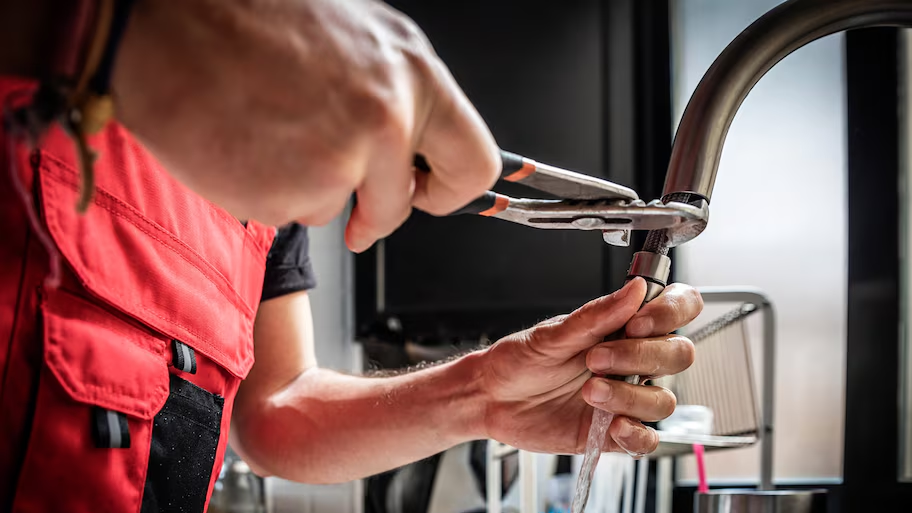Your Factors Behind Fixing a Leaking Faucet
Your Factors Behind Fixing a Leaking Faucet
Blog Article
We've discovered this great article about What Causes Leaky Faucets & How To Fix Them down the page on the net and decided it made good sense to write about it with you on this site.

Dripping taps may feel like a small inconvenience, but their effect exceeds simply the annoyance of the sound. From wasting water to incurring unneeded economic prices and wellness threats, ignoring a dripping faucet can result in different repercussions. In this write-up, we'll look into why it's crucial to address this usual house concern promptly and effectively.
Wastage of Water
Environmental Impact
Dripping faucets contribute significantly to water wastage. According to the Environmental Protection Agency (EPA), a solitary faucet leaking at one drip per second can squander more than 3,000 gallons of water per year. This not only pressures water sources yet additionally impacts environments and wild animals based on them.
Financial Prices
Raised Water Costs
Past the environmental impact, dripping taps can pump up water expenses substantially. The accumulated wastefulness with time translates right into greater utility expenses, which can have been stayed clear of with timely repair work.
Potential Property Damages
Additionally, extended dripping can cause damage to components and surface areas surrounding the tap. Water build-up can cause discoloration, rust, and even architectural issues if left neglected, leading to added repair work costs.
Wellness Issues
Mold and Mildew Growth
The consistent existence of dampness from a leaking faucet produces a perfect atmosphere for mold and mold growth. These fungi not just compromise indoor air top quality but also position health risks, specifically for people with breathing conditions or allergies.
Waterborne Conditions
Stationary water in leaking faucets can end up being a breeding ground for germs and various other pathogens, boosting the risk of waterborne illness. Impurities such as Legionella germs grow in stagnant water, possibly leading to severe illnesses when ingested or breathed in.
DIY vs. Specialist Repair work
Benefits and drawbacks of DIY Repair Service
While some might attempt to take care of a trickling faucet themselves, DIY repair services feature their own collection of challenges. Without appropriate expertise and devices, DIY attempts can worsen the concern or bring about incomplete repair work, extending the trouble.
Advantages of Employing a Specialist Plumber
Working with a professional plumber guarantees that the underlying root cause of the trickling tap is addressed effectively. Plumbings have the experience and tools to diagnose and repair tap problems successfully, conserving time and decreasing the threat of more damages.
Step-by-Step Overview to Dealing With a Dripping Tap
Devices Called for
Prior to trying to fix a dripping faucet, gather the necessary devices, consisting of a flexible wrench, screwdrivers, substitute components (such as washers or cartridges), and plumber's tape.
Common Faucet Issues and Their Solutions
Identify the sort of tap and the particular issue causing the drip. Common troubles consist of damaged washers, corroded shutoff seats, or damaged O-rings. Describe maker directions or on the internet tutorials for detailed support on repair work.
Preventive Measures
Regular Upkeep Tips
To avoid leaking faucets, execute regular maintenance such as cleaning aerators, evaluating for leakages, and replacing damaged parts promptly. In addition, think about installing water-saving tools or updating to much more reliable components.
Significance of Prompt Services
Resolving leaking faucets as soon as they're noticed protects against additional water wastage and possible damage, ultimately conserving both water and money in the future.
Effect On Home Worth
Understanding of Well-Maintained Building
Preserving a home in good condition, including attending to maintenance problems like dripping taps, boosts its viewed worth and value amongst potential customers or lessees.
Influence on Resale Worth
Characteristics with properly maintained plumbing fixtures, consisting of taps, command higher resale worths in the property market. Dealing with trickling faucets can contribute to a favorable impact during home inspections and settlements.
Ecological Responsibility
Private Payment to Preservation
Taking responsibility for taking care of trickling faucets aligns with wider initiatives towards water preservation and environmental sustainability. Every person's activities collectively make a significant impact on maintaining precious resources.
Sustainable Living Practices
By focusing on prompt fixings and taking on water-saving routines, people add to sustainable living techniques that benefit both existing and future generations.
Verdict
Dealing with a trickling faucet exceeds simple ease; it's an essential step toward saving water, minimizing monetary prices, and guarding health and residential property. Whether via do it yourself repairs or professional support, acting to repair leaking faucets is a little yet impactful method to promote responsible stewardship of resources and contribute to a healthier, more sustainable future.
How to Fix a Leaky Faucet: Step-by-Step Repair Guide
A leaky faucet may seem like a simple annoyance, but if it's not fixed promptly, that leak could cost hundreds to potentially thousands. From water damage to mold, mildew, and high water bills, even a tiny leak can be catastrophic if left unattended. Damage like this can even affect the overall value of your home, so it's important to take the right approach for leaky faucet repair. You may need the help of a plumber in some cases, but we've got a few tips you can try on how to fix a leaky faucet before calling the pros.
Four Faucet Types
When you're learning how to fix a leaky faucet, the first step is knowing what kind of faucet you're working with! There are four common types.
Cartridge Faucets
Cartridge faucets come in one- or two-handled varieties. In one-handled cartridge faucets, hot and cold water combines in a single cartridge. In the two-handled versions, hot and cold water are controlled separately and mixed in the faucet.
Ball Faucets
Ball faucets have a single lever you push up and down to adjust the pressure and rotate to change the temperature. A slotted metal ball controls the amount of water allowed into the spout.
Compression Washer Faucets
They're the oldest type of faucet, but they're still used in many homes — especially older ones. Compression faucets have two separate handles that, when turned, raise or lower the washer that seals a water valve. This valve stops water from flowing through the faucet when it is turned off.
Disc Faucets
Disc faucets rarely need to be repaired due to their maintenance-free design. The water flow is controlled by two discs — the upper one raises and lowers against a fixed lower disc, creating a watertight seal. If your disc faucet starts leaking, you may need to replace the seals or clean residue buildup from the inlets.
Fixing a Leaky Faucet
Step 1: Turn Off the Water
Whether you're learning how to fix a leaky bathtub faucet or how to fix a leaky kitchen faucet, always turn off the water supply to your working area when you're fixing a leak. The last thing you want is a flood added to your list of things to fix.
Look for the shutoff valves below your sink or around the tub and turn them clockwise to stop the water flow. If your faucet doesn't have shutoff valves, you may need to turn off the water for the whole house. Check to make sure it's off by turning the faucet on. If nothing comes out, you're ready to start the repair.
Step 2: Take Apart the Faucet
How you disassemble your faucet depends on the type of fixture you have. You can use a flathead screwdriver to remove the caps on top of the handle or handles for cartridge and compression faucets. Inside, you should see handle screws. Unscrew these with a screwdriver to remove the handle.
Disc- and ball-style faucets will typically have an inlet screw near the handle, and removing that will reveal the interior of the faucet.
Detach the Valve Stem
For cartridge- and compression-style faucets, you'll see the inner valve stem or cartridge once you remove the faucet handles. If you have a compression faucet, unscrew the brass valve stem. If you have a cartridge faucet, pull out the cartridge. If your cartridge has been in place for a while, it may require some tools or extra force to remove it due to mineral deposits.
Examine and Replace Parts
Once you've removed the parts, check them out to confirm what needs to be replaced. You may see corroded rubber washers, O-rings, stems, or cartridges. On a ball-style faucet, check the seats and springs for damage.
If you need to repair a leaky disc faucet, check the inlet and seals on the lower disc.
Once you determine what parts must be replaced, visit your local hardware store. Bring the damaged parts with you to ensure you can purchase the correct components to replace them.
Clean Valves and Faucet Cavity
If you've removed a stem or cartridge, you may notice mineral buildup in the faucet's threads. Use white vinegar to clean the valve seat by soaking it for a few minutes, then scrub it away with a soft toothbrush and rinse with warm water. You can also clean the interior of the faucet in the same way.
Reassemble the Faucet
Once your faucet is cleaned and the required parts have been replaced, it's time to reassemble it. Put the pieces back together and slowly turn the water supply back on. Doing this slowly is crucial because too much initial water pressure can damage the new hardware you've just installed.
https://homewarranty.firstam.com/blog/how-to-fix-leaky-faucet

I'm certainly very drawn to 4 Common Reasons for a Leaky Faucet and I hope you enjoyed reading the entire entry. Sharing is nice. You never know, you could be helping someone out. Thanks so much for taking the time to read it.
Report this page